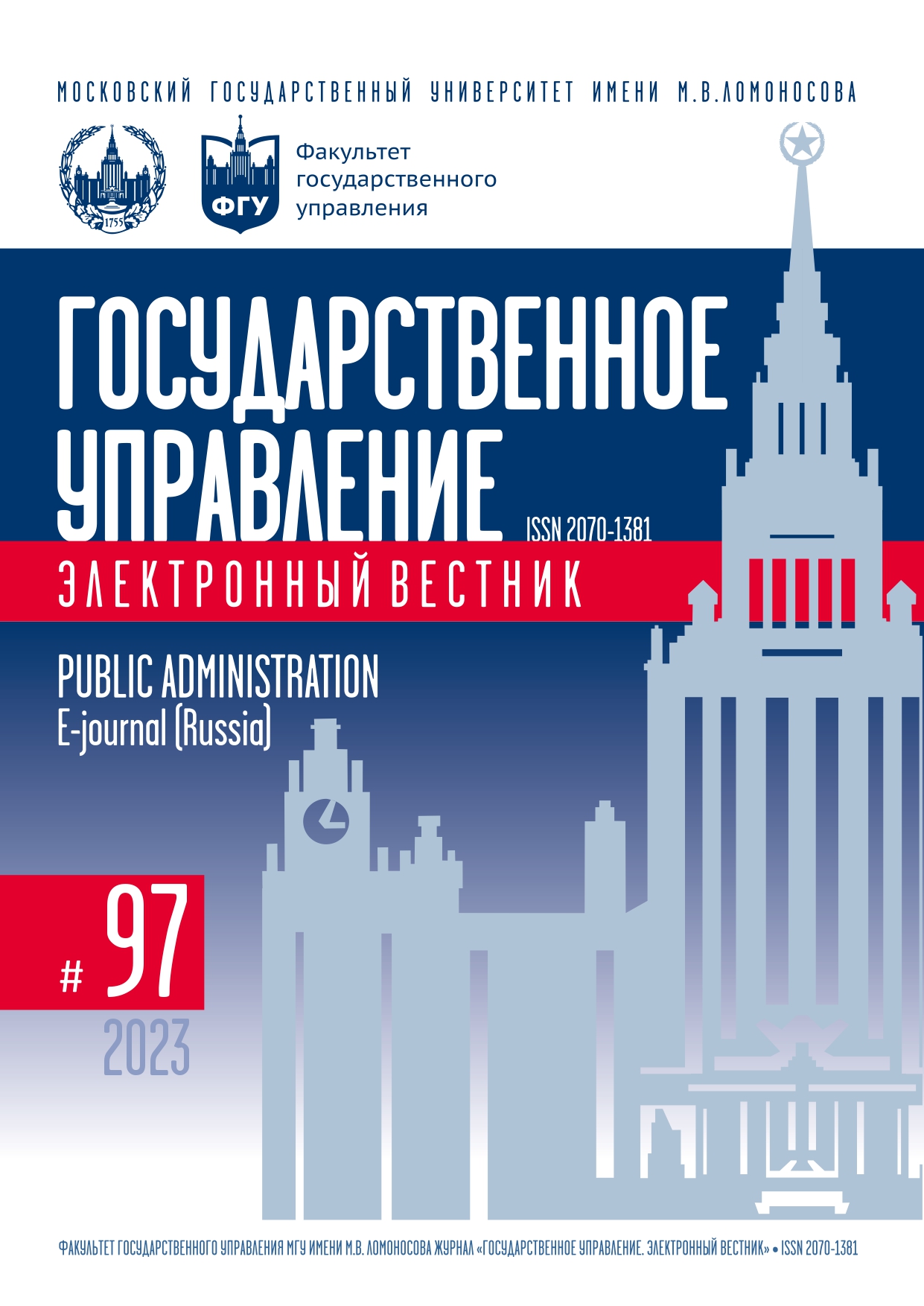Кадровая обеспеченность в сфере информационных технологий в России: проблемы и перспективы
DOI:
https://doi.org/10.24412/w2g8n304Ключевые слова:
«Утечка мозгов», цифровое развитие, кадровый потенциал, санкции, государственная политика.Аннотация
Статья посвящена исследованию проблемы кадровой обеспеченности ИТ-специалистами в России в 2022 году; проанализированы характер и масштаб данного процесса. В течение 2022 года страну покинули наиболее квалифицированные и востребованные кадры — лидеры цифровой трансформации настоящего и будущего. В российских организациях уехавшие высококвалифицированные специалисты замещаются кадрами более низкой квалификации с меньшим опытом, более скромным набором навыков и умений. Причем сам поиск новых кадров может растягиваться на несколько месяцев, что оказывает негативное влияние на производственные процессы. За 2022 год среди российских специалистов сформировался высокий потенциал для отъезда и переориентации на иностранные компании. Долгосрочный негативный вклад в отток квалифицированных кадров из России вносят введенные в отношении сфер науки и образования санкции. Предпринимаемые российскими властями меры по решению проблемы имеют ограниченную эффективность: можно говорить о перспективе стабилизации или заморозке проблемы, но не о ее решении. Подчеркивается, что при отсутствии действенных тактических и стратегических мер по решению данной проблемы в перспективе ближайших лет российское государство может столкнуться с новой проблемой: технологической деградацией и застоем в цифровом развитии на фоне дефицита высококвалифицированных кадров. Данная проблема требует незамедлительных мер по ее устранению, прежде всего через понимание причин отъезда специалистов, а также их целей и мотивов, жизненных установок. Принимаемые государством меры поддержки должны учитывать два уровня причин: во-первых, это минимизация влияния тех факторов, которые побудили специалистов покинуть страну; во-вторых, создание долгосрочных комфортных и привлекательных условий для развития ИТ-специалистов внутри страны.
Библиографические ссылки
Булина А.О., Мозговая К.А., Пахнин М.А. Человеческий капитал в теории экономического роста: классические модели и новые подходы // Вестник Санкт-Петербургского университета. Экономика. 2020. Т. 36. № 2. С 163–188. DOI: 10.21638/spbu05.2020.201
Казанцев А.А., Боришполец К.П. «Утечка мозгов» из России как политико-управленческая проблема // Вестник МГИМО. 2013. №6(33). С. 206–214. DOI: 10.24833/2071-8160-2013-6-33-206-214
Климова Ю.О. Проблемы подготовки кадров в сфере информационных технологий // Проблемы развития территории. 2020. №6(110). С. 86–105. DOI: 10.15838/ptd.2020.6.110.6
Сагалаева С.С. Имидж государства: сущность и подходы к определению // Вестник Московского государственного лингвистического университета. Общественные науки. 2020. № 2(839). С. 43–54.
Фомкин Ф.С. Российская наука в период санкций // Respublica Literaria. 2022. Т. 3. № 3. С. 106–117. DOI: 10.47850/RL.2022.3.3.106-117
Ханин Г.И. Российская наука в период санкций в свете проблемы модернизации российской экономики // Управление наукой: теория и практика. 2022. Т. 4. № 3. С. 69–84. DOI: 10.19181/smtp.2022.4.3.6
Харламова Т.Л., Сорокина Ю.А. Информационные технологии как фактор экономического развития // Известия Юго-Западного государственного университета. Серия: Экономика. Социология. Менеджмент. 2017. Т. 7. № 2(23). С. 53–59.
Banerjee P., Gupta R. Talent Attraction through Online Recruitment Websites: Application of Web 2.0 Technologies // Australasian Journal of Information Systems. 2019. Vol. 23. DOI: https://doi.org/10.3127/ajis.v23i0.1762
Tipayalai K. Impact of International Labor Migration on Regional Economic Growth in Thailand // Economic Structures. 2020. Vol. 9. DOI: 10.1186/s40008-020-00192-7
Çalışkan H. Technological Change and Economic Growth // Procedia — Social and Behavioral Sciences. 2015. Vol. 195. P. 649–654. DOI: 10.1016/j.sbspro.2015.06.174
Загрузки
Опубликован
Похожие статьи
- Астратова Галина Владимировна, Онвусирибе Чигозирим Ндубуиси, Геополитическое давление и ответные меры государственной политики по совершенствованию агропромышленного комплекса в интересах продовольственной безопасности и экономического роста АПК России , Государственное управление. Электронный вестник: № 112 (2025)
- Шумская Екатерина Игоревна, Критика неоклассических предпосылок современной экономической политики в контексте реализации человеческого потенциала , Государственное управление. Электронный вестник: № 94 (2022)
- Тюрчев Кирилл Сергеевич , Милова Каролина Евгеньевна, Что нужно стартапу? Региональные факторы развития малого технологического бизнеса в России , Государственное управление. Электронный вестник: № 105 (2024)
- Назаренко Максим Олегович, Политика, дружественная к семьям работников: модель формирования и контроль эффективности в современных организациях сферы государственного и муниципального управления , Государственное управление. Электронный вестник: № 110 (2025)
- Кононкова Наталья Петровна, Полавская Наталия Вадимовна, Государственная поддержка коммерциализации результатов интеллектуальной деятельности в социально значимых отраслях , Государственное управление. Электронный вестник: № 103 (2024)
- Судас Лариса Григорьевна, Наука и государственная научная политика в дискурсе «научной честности» , Государственное управление. Электронный вестник: № 100 (2023)
- Андрюшина Евгения Владимировна, Инфодемия как фактор социальной безопасности и антиинфодемийная политика , Государственное управление. Электронный вестник: № 95 (2022)
- Трофимов Сергей Евгеньевич , Государственная политика импортоопережения в нефтегазовом комплексе России , Государственное управление. Электронный вестник: № 99 (2023)
- Ишеков Константин Анатольевич, Амбарцумов Семён Камоевич, Формирование нормативно-правовых основ государственной политики в сфере альтернативной энергетики , Государственное управление. Электронный вестник: № 105 (2024)
- Шкарина Вера Сергеевна, Особенности развития креативных индустрий в современной экономической политике , Государственное управление. Электронный вестник: № 94 (2022)
Вы также можете начать расширеннвй поиск похожих статей для этой статьи.




